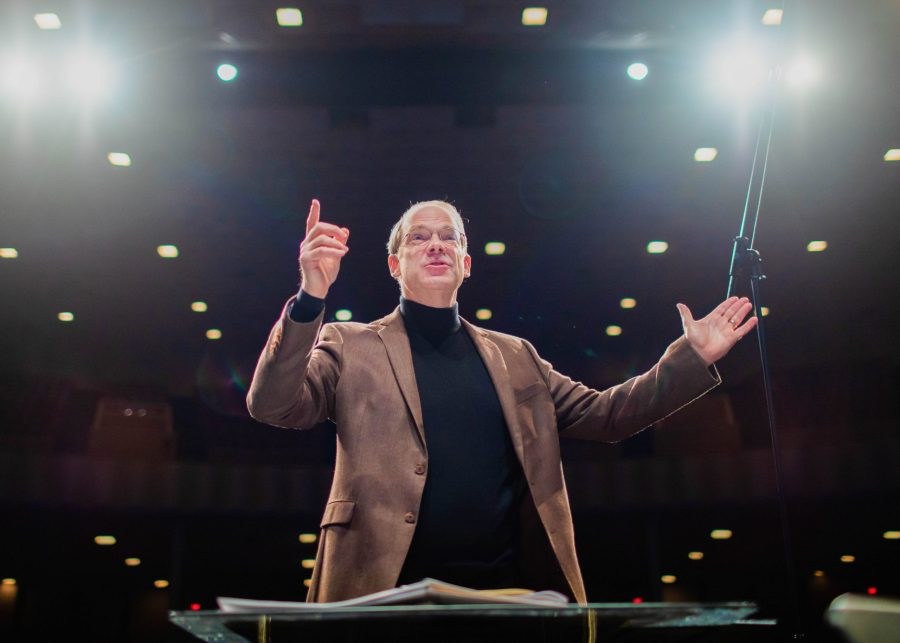BJU’s symphony orchestra and four University choirs will perform selections from George Frideric Handel’s Messiah on Dec. 12 and 13 at 7:30 p.m. in Rodeheaver Auditorium as part of the University’s Concert, Opera and Drama series. The concert will celebrate Christ’s birth, death and resurrection during the Christmas season.
Dr. Warren Cook, faculty member in the Division of Music, will conduct the choirs and orchestra. Cook said these two performances will mark the 12th and 13th time he’s conducted Messiah, and the oratorio is performed every four to five years at BJU. “It is one of the great masterpieces of western civilization,” Cook said.
Four soloists will perform in the concert. Laura Brundage, a faculty member in the Division of Music, is the soprano soloist, and Marianne Freeman, a senior communications disorders major, is the alto soloist. Jason Rush, a graduate, will sing tenor, and Dr. David Parker of the music faculty will sing bass.
The Messiah will also involve 206 singers from four of the University’s choirs: Chorale, Concert Choir, Collegiate Choir and University Singers. They will perform 10 select choruses from the work, including “For Unto Us a Child is Born” and “Glory to God in the Highest.”
“Hallelujah,” the famous chorus that audiences traditionally stand for, will end the night. Cook said in the past, fewer choirs have sung the oratorio, and Handel might have used only twenty voices. But he’s using 206 singers for an effect.
“I want the experience to be a little larger than life,” Cook said. Cook said the choirs began practicing in September.
The orchestra, led by Dr. Michael Moore, began practicing midsemester. Cook began conducting the orchestra during November to shape the styling closer to his vision.
Isabel Vosburgh, concert master for the orchestra, said she is excited to learn from Cook. “I think the whole thing is going to be a good growing experience,” Vosburgh said.
Because this is Vosburgh’s first time as concert master at BJU, she said she’s a little nervous but mostly excited about the opportunity. “I think Messiah is a really cool piece,” Vosburgh said. “So I’m excited we get to do it.”
Handel’s oratorio debuted in April of 1742 in Dublin, Ireland. Its premiere was scheduled to celebrate the Easter season, since the piece focuses on Christ’s death and resurrection as well as his birth.
Though much smaller than the 2,500 students who will attend the concerts over two days at BJU, the original performance drew a large crowd for its day—around 700 people.
The words of Messiah were written by Charles Jennens, who frequently collaborated with Handel. Handel lauded Jennens with honor for his work, calling the piece Jennens’ oratorio.
Cook said that it seems it was paramount for Handel that the listeners get a clear sense of the text before he ornaments the words with music. “Handel is always careful to lay the text out very clearly before he ornaments it,” Cook said.
Handel wrote the 259-page score in three to four weeks. After the premiere, Handel donated what he received to a debtor’s prison and a hospital in Dublin.
Handel himself was born in Germany in 1685. His musical talent was discovered by a friend of his father, and Handel wrote his first opera when he was 18 years old. After traveling around Europe for years, he settled in London. Eight days after attending a performance of Messiah, Handel died in 1759.


























































